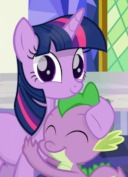Improv Freestyle · 9:58pm Nov 8th, 2017

Written on my phone in Skype. Because I had to get it out of my head.
Once upon a time, there was a girl who hated cooking.
This is not to say she hated cooking the way many girls hated cooking -- that is to say, as a vaguely sexist and most certainly unpleasant chore. Rather, she hated the cooking the way certain results-oriented racist groups feel about minorities. In short, she would prefer that it did not exist, and if it did exist, she didn't want it anywhere near her.
Given the human need to eat, it was often a difficult position. So she resolved to build a machine that produced food without the need for cooking, that her foe could at last be eliminated.
In order to do this, she required an assistant skilled in the preparation of food. And so she put out an add, and soon hired a young woman from the nearby town. This young woman, who we shall call Jane, hated cooking the way many young women hate cooking, not the least aided by how her mother had forced her to learn the very skill. But she did love money, and her affection for a regular paycheck outweighed her distaste.
And so the two worked together for many hours. They taught the machine just what a properly shaved carrot looked like, that it could produce them without the need for shavings or carrots. They taught it the correct flavors for meat, and how to make crisp bread, and a hundred other skills it would need to know before it could never perform them again.
Until finally, one day, Jane asked the girl who had hired her why she hated cooking so much.
"Because," the girl replied, "I hate mediocrity. Look at this lamp. A man studied for four years before he was allowed to touch the machine that would stamp the metal that would make this lamp's casing. He worked under the direction of a yet more skilled and senior engineer, and every other part of this lamp was assembled with as much care. The only exception is, of course, the bulb, which was assembled with vastly more care by considerably more engineers, and likely at least one physicist."
With a finger, the girl tapped the table, and then indicated the food and ingredients around them. "Any kitchen populated exclusively by chefs with four years of careful training and years more of diligent experience would be a fine kitchen indeed! Four stars, if not potentially five. And yet this lamp is, in all truth, only somewhat above average. To the chefs in the world who take the time to truly master their craft I say, bravo. Be they a hundred or a thousand, or perhaps even a million souls. But to the other billion chefs in the world, I give the scorn that is due to someone who has contended themselves with adequacy."
Jane considered this, and said that she did not devote herself to the craft of cooking, and indeed had only taken the position for the money, and because her skills were adequate for it.
"Better that way," the girl said, "for it should be quite strange if you agreed to help destroy something you treasure."
Jane considered that as well for a time, and then said: "And what of the people who use your machine? Are they not themselves settling for mediocrity? Choosing the reliable output of a mechanical device over the possibility for true original greatness?"
"What they receive," said the girl, "shall be inexpensive food, reliable and sustaining, without the waste and baggage of inefficient traditions. If that is a punishment or a reward is outside the scope of my understanding, but I am comforted by the knowledge that each shall receive what they truly desired, and each shall receive what they deserve."
In time, the two finished their machine. Many millions of cooks across the world were put out of work, and in the time to come, a mob of them formed and beat the girl to death, and burned down her workshop. It did them little good, and most were out of work forevermore. Jane however, escaped the conflagration, and went on to open a restaurant in the heart of the city.
The food she prepared, which she called, "Traditional," was inferior to the machine in all ways, for it was but the same work, performed less reliably and by her shaking hands instead of precision steel. She charged three times as much as the machines did, and in truth, her waiter was prone to forget orders, to drop things, and bring customers regular soda when they clearly asked for diet.
As she looked over her restaurant, and overcharged her customers for their meals, she reflected on her patron's words -- that each should, in the end, receive precisely what they deserve. She struggled with the meaning of it all. She did not know if she should be proud or ashamed for her part in what occurred, and in the end, she was able to reach no deep conclusions.
But at least she stopped feeling bad about all the times she burned the food.





I'm not sure if "the girl" is a tragic hero, or just a hero.
Inspired by Barthélemy Thimonnier?
And the moral of the story is... um... art!
Eh.
2/10, much less Sweetie Belle than advertised.
4720687
:(
Celestia dammit, how is this so philosophical